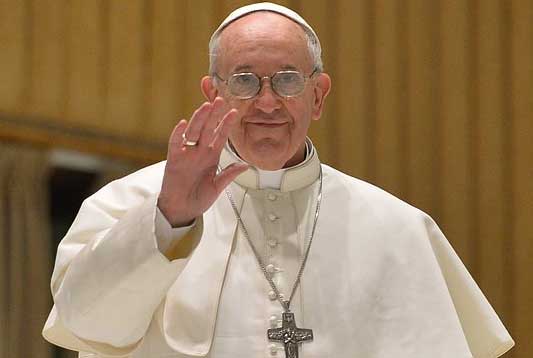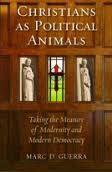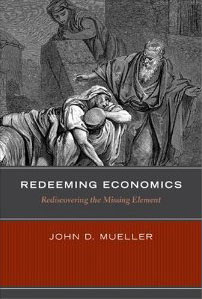Dr. Benjamin Wiker once again brings to us a fascinating, well-researched, and informative historical review of the multiple factors which have brought us to the rise of  “secular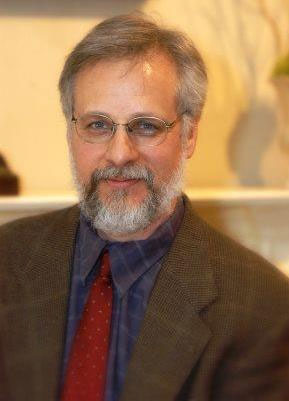 liberalism” in the United States.  This is not book about political parties, but rather the overall mindset that has infected every fabric of our society. He demonstrates the interplay between ideas and events. By looking at the teachings of certain influential philosophers (Machiavelli, Hobbes, Spinoza, Rousseau, and Locke) he demonstrates the “step-by-step” descent  which has led us to  point where various aspects of our culture lift up the “belief of unbelief”, a strange paradox which ultimately undermines the integrity of the moral life of a society.  Dr. Wiker is delightfully engaging to talk with.  I always look forward to reading his books…over and over again.
liberalism” in the United States.  This is not book about political parties, but rather the overall mindset that has infected every fabric of our society. He demonstrates the interplay between ideas and events. By looking at the teachings of certain influential philosophers (Machiavelli, Hobbes, Spinoza, Rousseau, and Locke) he demonstrates the “step-by-step” descent  which has led us to  point where various aspects of our culture lift up the “belief of unbelief”, a strange paradox which ultimately undermines the integrity of the moral life of a society.  Dr. Wiker is delightfully engaging to talk with.  I always look forward to reading his books…over and over again.
[powerpress]
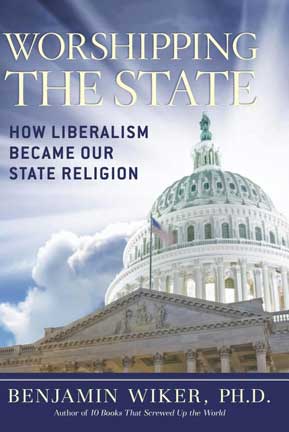 You can find the book here
You can find the book here
“Benjamin Wiker’s book is the most forthright and unblinking analysis yet published of the ubiquitous assault on religion in American society. Not only every religious believer but every believer in religious liberty should read it.’
James Hitchcock, Professor of History, St. Louis University and author of What is Secular Humanism?, The Recovery of the Sacred, and The Supreme Court and Religion in American Life.
Tags: Benjamin Wiker, liberty, religion, religious liberty
This entry was posted on Tuesday, April 30th, 2013 at 9:24 am
You can follow any responses to this entry through the RSS 2.0 feed.
Special Episode- Regnum Novum: Bringing forth the New Evangelization through Catholic Social Teaching with Omar Gutierrez – In this special edition we discuss Pope Francis – who is he and what might his message be.
– In this special edition we discuss Pope Francis – who is he and what might his message be.
[powerpress]
We live at a very special time. The confluence of many things has brought forth the clear need to be able to articulate the Social Teaching of the Catholic Church in a way that is accessible and applicable. This is not to be an effort where high-minded theories are to be bandied about. Rather, this is a time of opportunity wherein we can apply the Social Doctrine to the concrete so as to bring about a New Kingdom, a Revolution. – Omar G.
From Wikipedia:
At his first audience on 16 March 2013, Francis told journalists that he had chosen the name in honor of Saint Francis of Assisi, and had done so because he was especially concerned for the well-being of the poor.[137][138][139] He explained that, as it was becoming clear during the conclave voting that he would be elected the new pontiff, the Brazilian Cardinal Cláudio Hummes had embraced him and whispered, “Don’t forget the poor”, which had made Bergoglio think of the saint.[140][141] Bergoglio had previously expressed his admiration for St. Francis, explaining that “He brought to Christianity an idea of poverty against the luxury, pride, vanity of the civil and ecclesiastical powers of the time. He changed history.”[142]
Also visit Omar’s “Discerning Hearts” page Catholic Social Teaching 101
Tags: catholic social teaching, New Kingdom, Pope Francis, social doctrine, special time
This entry was posted on Thursday, March 28th, 2013 at 1:37 pm
You can follow any responses to this entry through the RSS 2.0 feed.
USCCA30 Â Chapter 24
[powerpress]
Archbishop Lucas offers insights on the US Catholic Catechism for Adults Chapter 24:
An awareness of the social dimension of human life is an important principle in understanding Christian morality, especially in light of the great emphasis on individualism in our society. The social aspect of what it means to be human is revealed in the natural inclination we have to seek social interaction and establish community. This awareness serves as a moral foundation for an attitude of solidarity with each other and leads to a dedication to social justice for everyone. Our Gospel commitment to Christ’s Kingdom of love, justice, and mercy always includes advocating and supporting fairness for all. God calls us to form community and to correct both the symptoms and causes of injustice that rip apart the solidarity of a community.
United States Conference of Catholic Bishops (USCCB)
The Most Reverend George J. Lucas leads the Archdiocese of Omaha.Â
For other episodes in the visit our Archbishop George Lucas page
This programs is based on:
More information can be found here.
We wish to thank the USCCB for the permissions granted for use of  relevant material used in this series.
Also we wish to thank Matt Wilkom  for his vocal talents in this episode.
[ezcc]
Tags: Archbishop Lucas, catholic social teaching, Jesus, mercy, solidarity, united states catholic catechism for adults, USCCB
This entry was posted on Monday, January 21st, 2013 at 5:56 am
You can follow any responses to this entry through the RSS 2.0 feed.
“Christians as Political Animals: Taking the Measure of Modernity and Modern Democracy”  as fascinating work that looks at faith, reason, virtue, and the limits of modern liberty. Dr. Marc Guerra, professor of the graduate program at Ave Maria University, brings forward Augstine and Aquinas, as well as 20th century theologians and political philosophers, to help us recognize that Christian thought must keep a proper prospective in viewing the political realm, and not to surrender our call and response as members of the body of Christ. Is it heading stuff? Not at all, faith and reason anchored in Truth, is for all of us to understand…it should be the true rudder we use to navigate the political landscape.
as fascinating work that looks at faith, reason, virtue, and the limits of modern liberty. Dr. Marc Guerra, professor of the graduate program at Ave Maria University, brings forward Augstine and Aquinas, as well as 20th century theologians and political philosophers, to help us recognize that Christian thought must keep a proper prospective in viewing the political realm, and not to surrender our call and response as members of the body of Christ. Is it heading stuff? Not at all, faith and reason anchored in Truth, is for all of us to understand…it should be the true rudder we use to navigate the political landscape.
You can find Dr. Guerra’s book here
[powerpress]
Tags: catholic, catholic podcast, catholic prayer
This entry was posted on Monday, October 29th, 2012 at 12:01 am
You can follow any responses to this entry through the RSS 2.0 feed.
Episode 22- Regnum Novum: Bringing forth the New Evangelization through Catholic Social Teaching with Omar Gutierrez – We continue the study of the “Compendium of the Social Doctrine of the Church” Â Chapter 2 Section 2
– We continue the study of the “Compendium of the Social Doctrine of the Church” Â Chapter 2 Section 2
[powerpress]
CHAPTER TWO
THE CHURCH’S MISSION AND SOCIAL DOCTRINE
II. THE NATURE OF THE CHURCH’S SOCIAL DOCTRINE
a. Knowledge illuminated by faith
b. In friendly dialogue with all branches of knowledge
c. An expression of the Church’s ministry of teaching
d. For a society reconciled in justice and love
e. A message for the sons and daughters of the Church and for humanity
f. Under the sign of continuity and renewal
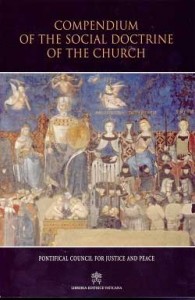
We live at a very special time. The confluence of many things has brought forth the clear need to be able to articulate the Social Teaching of the Catholic Church in a way that is accessible and applicable. This is not to be an effort where high-minded theories are to be bandied about. Rather, this is a time of opportunity wherein we can apply the Social Doctrine to the concrete so as to bring about a New Kingdom, a Revolution. – Omar G.
Also visit Omar’s “Discerning Hearts” page Catholic Social Teaching 101
Tags: compendium of the social doctrine of the church
This entry was posted on Tuesday, October 2nd, 2012 at 10:43 am
You can follow any responses to this entry through the RSS 2.0 feed.
Episode 21- Regnum Novum: Bringing forth the New Evangelization through Catholic Social Teaching with Omar Gutierrez – We continue the study of the “Compendium of the Social Doctrine of the Church” Â Chapter 2 Section 1
– We continue the study of the “Compendium of the Social Doctrine of the Church” Â Chapter 2 Section 1
[powerpress]
CHAPTER TWO
THE CHURCH’S MISSION AND SOCIAL DOCTRINE
I. EVANGELIZATION AND SOCIAL DOCTRINE
a. The Church, God’s dwelling place with men and women
b. Enriching and permeating society with the Gospel
c. Social doctrine, evangelization and human promotion
d. The rights and duties of the Church

We live at a very special time. The confluence of many things has brought forth the clear need to be able to articulate the Social Teaching of the Catholic Church in a way that is accessible and applicable. This is not to be an effort where high-minded theories are to be bandied about. Rather, this is a time of opportunity wherein we can apply the Social Doctrine to the concrete so as to bring about a New Kingdom, a Revolution. – Omar G.
Also visit Omar’s “Discerning Hearts” page Catholic Social Teaching 101
Tags: compendium of the social doctrine of the church, evangelization, family
This entry was posted on Tuesday, September 18th, 2012 at 7:08 am
You can follow any responses to this entry through the RSS 2.0 feed.
Episode 19- Regnum Novum: Bringing forth the New Evangelization through Catholic Social Teaching with Omar Gutierrez – We begin the study of the “Compendium of the Social Doctrine of the Church” Â Chapter 1
– We begin the study of the “Compendium of the Social Doctrine of the Church” Â Chapter 1
[powerpress]
CHAPTER ONE
GOD’S PLAN OF LOVE FOR HUMANITY
I. GOD’S LIBERATING ACTION IN THE HISTORY OF ISRAEL
a. God’s gratuitous presence
b. The principle of creation and God’s gratuitous action
II. JESUS CHRIST, THE FULFILMENT OF THE FATHER’S PLAN OF LOVE
a. In Jesus Christ the decisive event of the history of God with mankind is fulfilled
b. The revelation of Trinitarian love
We live at a very special time. The confluence of many things has brought forth the clear need to be able to articulate the Social Teaching of the Catholic Church in a way that is accessible and applicable. This is not to be an effort where high-minded theories are to be bandied about. Rather, this is a time of opportunity wherein we can apply the Social Doctrine to the concrete so as to bring about a New Kingdom, a Revolution. – Omar G.
Also visit Omar’s “Discerning Hearts” page Catholic Social Teaching 101
Tags: catholic social doctrine, catholic social teaching, creation, scripture
This entry was posted on Tuesday, September 4th, 2012 at 8:37 am
You can follow any responses to this entry through the RSS 2.0 feed.
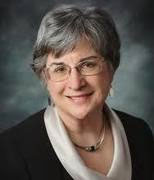 Bruce and I discuss with Dr. Janet Smith “The Right to Privacy” . In her book she presents a critical look at the meaning of the “right to privacy†that has been so often employed by the Supreme Court in recent times to justify the creation of rights not found in the Constitution by any traditional method of interpreting a legal document.
Bruce and I discuss with Dr. Janet Smith “The Right to Privacy” . In her book she presents a critical look at the meaning of the “right to privacy†that has been so often employed by the Supreme Court in recent times to justify the creation of rights not found in the Constitution by any traditional method of interpreting a legal document.
[powerpress]
Dr. Smith shows how these inventions have led to the legal protection of abortion, assisted suicide, homosexual acts, and more. As Judge Bork says it shows that “morals legislation now seems constitutionally impermissibleâ€, and that the counterfeit right to privacy belongs to the genre of the indecipherable and incoherent that no one who wrote the Constitution and the Bill of Rights would have contemplated.
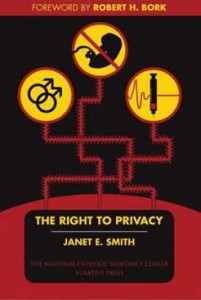 At the heart of Catholic Social Teaching is the fundamental principle of the dignity of every human life. Understanding and appreciating that, and then assessing the laws of the land of our country, will help us to navigate and discern our service and response as Catholic Americans living in the world. We are called to defend the “Gospel of Life”, Dr. Smith helps us to do just that.
At the heart of Catholic Social Teaching is the fundamental principle of the dignity of every human life. Understanding and appreciating that, and then assessing the laws of the land of our country, will help us to navigate and discern our service and response as Catholic Americans living in the world. We are called to defend the “Gospel of Life”, Dr. Smith helps us to do just that.
“The Right to Privacy” can be found at www.ignatius.com
Tags: assisted suicide, bill of rights, catholic, catholic podcast, catholic prayer, cathollc spirituality, constitution and the bill of rights, homosexual acts, janet smith, legislation, morals, morning show, right to privacy, supreme court
This entry was posted on Saturday, January 21st, 2012 at 12:16 am
You can follow any responses to this entry through the RSS 2.0 feed.
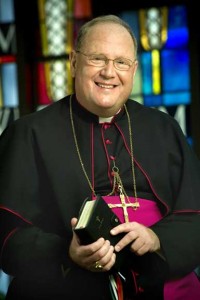 Archbishop Dolan shares a personal story of his experience at World Youth Day in Toronto in hearing a young woman who had been a prostitute talk about how God’s love fundamentally changed her. Dolan defines human dignity, and describes the “doctrine of the dignity of the human person.” This video is the first of four discreet sections of Archbishop Dolan’s full talk. The full presentation is also available on YouTube.
Archbishop Dolan shares a personal story of his experience at World Youth Day in Toronto in hearing a young woman who had been a prostitute talk about how God’s love fundamentally changed her. Dolan defines human dignity, and describes the “doctrine of the dignity of the human person.” This video is the first of four discreet sections of Archbishop Dolan’s full talk. The full presentation is also available on YouTube.
Tags: catholic, catholic podcast, catholic prayer, catholic social teaching, cathollc spirituality, dignity of human person
This entry was posted on Wednesday, January 11th, 2012 at 9:47 pm
You can follow any responses to this entry through the RSS 2.0 feed.
Episode 7 – Regnum Novum: Bringing forth the New Evangelization through Catholic Social Teaching with Omar Guiterrez – Value 5 The Common Good, Universal Destination of Goods, Subsidiarity, Participation, Solidarity part 1
– Value 5 The Common Good, Universal Destination of Goods, Subsidiarity, Participation, Solidarity part 1
[powerpress]
These are the five principles laid out in the Compendium of the Social Doctrine of the Church. If we understand these principles, then the work of the Revolution can begin. We are made now for a New Kingdom with Christ as our King in all things. Let us discover this place together, and make the devil cringe and know the suffering of defeat. “Love”
Discerning Hearts is blessed to present Omar F. A. Guiterrez, M.A. , Special Assistant to Archbishop George Lucas of the Archdiocese of Omaha, in a groundbreaking series which breaks open the heart of Catholic Social Doctrine.
We encourage you to visit “Regnum Novum – A New Kingdom: A Revolution” Omar Guiterrez’s blog site
 We live at a very special time. The confluence of many things has brought forth the clear need to be able to articulate the Social Teaching of the Catholic Church in a way that is accessible and applicable. This is not to be an effort where high-minded theories are to be bandied about. Rather, this is a time of opportunity wherein we can apply the Social Doctrine to the concrete so as to bring about a New Kingdom, a Revolution. – Omar G. from Regnum Novum
We live at a very special time. The confluence of many things has brought forth the clear need to be able to articulate the Social Teaching of the Catholic Church in a way that is accessible and applicable. This is not to be an effort where high-minded theories are to be bandied about. Rather, this is a time of opportunity wherein we can apply the Social Doctrine to the concrete so as to bring about a New Kingdom, a Revolution. – Omar G. from Regnum Novum
From episode 7… Point 5: The Common Good, Universal Destination of Goods, Subsidiarity, Participation, Solidarity
These are the five principles laid out in the Compendium of the Social Doctrine of the Church. If we understand these principles, then the work of the Revolution can begin. We are made now for a New Kingdom with Christ as our King in all things. Let us discover this place together, and make the devil cringe and know the suffering of defeat.
In this episode we focus on “The Common Good”.
Also visit Omar’s “Discerning Hearts” page Catholic Social Teaching 101
Tags: catholic, catholic podcast, catholic prayer, cathollc spirituality, The common good
This entry was posted on Monday, November 28th, 2011 at 7:59 am
You can follow any responses to this entry through the RSS 2.0 feed.
“Dispose the day…” OK, I really didn’t understand the significance of St. Crispin and St. Crispinian except for their presence in the robust guy “band of brothers” speech from Shakespeare’s Henry V…very macho “rouse the troops” moment in the play… I just figured they were warriors too…(besides I’m more of a  “Midsummer Night’s Dream” kind of Shakespeare girl anyway…)
                         Â
 That is until I read Omar F. A. Gutierrez’s fantastic blog post bringing it all together! Treat your brain and heart by visiting his blog  Regnum Novum
That is until I read Omar F. A. Gutierrez’s fantastic blog post bringing it all together! Treat your brain and heart by visiting his blog  Regnum Novum
Here, once again, is Omar Guiterrez breaking open for Discerning Hearts the beauty of Catholic Social Doctrine….
(it’s amazing where you can find it if you have eyes to see and ears to hear)
Today marks the feast of Saints Crispin and Crispian, brothers who were martyred by beheading in Rome sometime during the reign of the Emperor Diocletian (emperor from 284-305 AD).
That the saints lived is certainly true. The story of these brothers, however, comes to us from a late account that has little to suggest it’s authenticity. Generally, though, we know them to be from Rome, to have worked in Soissons, Gaul (now France), and to have been shoemakers thus earning them the title of patrons for shoemakers, cobblers, and those who work with leather.
The tale is that these two brothers, perhaps twins of noble blood, caught up in the zealous care for their faith and in love for Christ, left Rome in the 3rd century in order to spread the Gospel in Gaul. They took up the trade of the shoemaker and would not charge the poor who requested their services. By their example, and not, it seems,by any grand preaching, these two were good witnesses to the faith and converted many. When Maximian was appointed co-emperor in 285 and came to Gaul, the brothers were accused and brought before a character named Rictiovarus, whom we don’t exactly know existed but whose seathing hatred for Christians is legendary. At any rate, they were tortured mercilessly, but when the attempt to kill the saintly brothers through drowning and burning failed, Rictiovarus was driven into such a desperate fury that he threw himself into the fire prepared for the brothers thus killing himself. Eventually, Crispin and Crispian were beheaded which is a very effective way of killing someone…unless you’re St. Winifred, in which case that might not always work.  There are several things I’d like to draw out about these saints.
The first is that it was on this day 595 years ago (1415) that King Henry V led his horribly outnumbered English army into battle against the French at Agincourt, the battle so wonderfully remember today for the speech written by Shakespeare in Henry V,( a version of which can be seen above with Kenneth Branagh.)
The second thing is this, brought out in an edition of Butler’s Lives of the Saints, namely that Sts. Crispin and Crispian are a wonderful reminder that sanctity is not only for the cloistered hermit who has removed himself from society. These two never embarked on some large speaking tour throughout Gaul. They did not write any large tomes explicating the faith for the masses. They are not known for levitating or bilocation or magically producing shoes no one today can replicate with all our modern technology. No, they were simply saintly shoemakers. They were holy artisans is all, and this is a good thing. In this way they are almost the perfect patron saints for laborers, heroes of the Social Doctrine of the Church.
I’m reminded of a line from the Part I Chapter 3 of St. Francis de Sales’ classic Introduction to the Devout Life where he says:
 It is an error, nay more, a very heresy, to seek to banish the devout life from the soldier’s guardroom, the mechanic’s workshop, the prince’s court, or the domestic hearth. Of course a purely contemplative devotion, such as is specially proper to the religious and monastic life, cannot be practised in these outer vocations, but there are various other kinds of devotion well-suited to lead those whose calling is secular, along the paths of perfection. The Old Testament furnishes us examples in Abraham, Isaac and Jacob, David, Job, Tobias, Sarah, Rebecca and Judith; and in the New Testament we read of St. Joseph, Lydia and Crispus, who led a perfectly devout life in their trades:–we have S. Anne, Martha, S. Monica, Aquila and Priscilla, as examples of household devotion, Cornelius, S. Sebastian, and S. Maurice among soldiers;–Constantine, S. Helena, S. Louis, the Blessed Amadaeus, 2 and S. Edward on the throne. And we even find instances of some who fell away in solitude,– usually so helpful to perfection,–some who had led a higher life in the world, which seems so antagonistic to it. S. Gregory dwells on how Lot, who had kept himself pure in the city, fell in his mountain solitude. Be sure that wheresoever our lot is cast we may and must aim at the perfect life.
Sanctity can be found through the work which God has given us no matter what that might be. Indeed it is to be found in the guardroom, in the shop, in the court, in the home. This is the message of the Social Teaching of the Catholic Church. Sanctity and evangelization can be found through the labor of everyday life. It is less what you do than the way you do it, and the way to do anything is with the love of Christ.
Third, I want to point out that with saints whose stories are in doubt it can be tempting to write them off as the incipient pap of bygone days. There are some who actually claim that the Church has managed its control over the laity throughout the centuries by inventing such stories. I’m not making that claim, but many are tempted to think that there never was such a saint, or that we cannot glean any lesson from them, or that, poor bumpkins that they were, those ignoramuses of the early years of the Church meant well if they weren’t always truthful. This sort of temptation is what Chesterton called “chronological snobbery.†Somehow we image that in our Enlightened age we appreciate truth much more than the people of the early centuries. This would be a terrible mistake.
Stories do evolve over time, and tales can be embellished but we should never forget three things: first, that the stories were told because of some real event or real person, even if we don’t remember their name and even if our collective memories have gotten the details wrong. Second, the miraculous is not impossible. We believe in things seen and unseen, so why presume the fantastical must be unreal? Third, someone in heaven answers to the name of these saints in question. That’s what matters.  – Regnum Novum
Thanks Omar! My visits to DSW will never be the same again.
Tags: catholic, catholic podcast, catholic prayer, catholic social doctrine, cathollc spirituality, christians, emperor diocletian, guiterrez, henry v, st crispin
This entry was posted on Tuesday, October 25th, 2011 at 10:16 am
You can follow any responses to this entry through the RSS 2.0 feed.
Episode 11- Regnum Novum: Bringing forth the New Evangelization through Catholic Social Teaching with Omar Guiterrez – Value 5 The Common Good, Universal Destination of Goods, Subsidiarity, Participation, Solidarity part 5
Social Teaching with Omar Guiterrez – Value 5 The Common Good, Universal Destination of Goods, Subsidiarity, Participation, Solidarity part 5
[powerpress]
These are the five principles laid out in the Compendium of the Social Doctrine of the Church. If we understand these principles, then the work of the Revolution can begin. We are made now for a New Kingdom with Christ as our King in all things. Let us discover this place together, and make the devil cringe and know the suffering of defeat. “Love”
Discerning Hearts is blessed to present Omar F. A. Guiterrez, M.A. , Special Assistant to Archbishop George Lucas of the Archdiocese of Omaha, in a groundbreaking series which breaks open the heart of Catholic Social Doctrine.
We encourage you to visit “Regnum Novum – A New Kingdom: A Revolution” Omar Guiterrez’s blog site
 We live at a very special time. The confluence of many things has brought forth the clear need to be able to articulate the Social Teaching of the Catholic Church in a way that is accessible and applicable. This is not to be an effort where high-minded theories are to be bandied about. Rather, this is a time of opportunity wherein we can apply the Social Doctrine to the concrete so as to bring about a New Kingdom, a Revolution. – Omar G. from Regnum Novum
We live at a very special time. The confluence of many things has brought forth the clear need to be able to articulate the Social Teaching of the Catholic Church in a way that is accessible and applicable. This is not to be an effort where high-minded theories are to be bandied about. Rather, this is a time of opportunity wherein we can apply the Social Doctrine to the concrete so as to bring about a New Kingdom, a Revolution. – Omar G. from Regnum Novum
From episode 11… Point 5: The Common Good, Universal Destination of Goods, Subsidiarity, Participation, Solidarity
These are the five principles laid out in the Compendium of the Social Doctrine of the Church. If we understand these principles, then the work of the Revolution can begin. We are made now for a New Kingdom with Christ as our King in all things. Let us discover this place together, and make the devil cringe and know the suffering of defeat.
In this episode we focus on “Solidarity”.
Also visit Omar’s “Discerning Hearts” page Catholic Social Teaching 101
Tags: catholic, catholic podcast, catholic prayer, catholic social doctrine, catholic social teaching, cathollc spirituality, Omar Guiterrez, solidarity
This entry was posted on Monday, October 10th, 2011 at 8:41 am
You can follow any responses to this entry through the RSS 2.0 feed.
Cardinal Arinze  spoke with 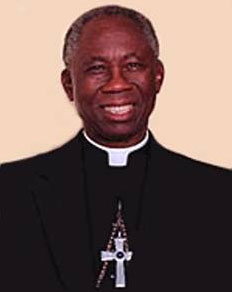 couples struggling with the challenge of infertility in Omaha on September 20, 2011.
couples struggling with the challenge of infertility in Omaha on September 20, 2011.
[powerpress]We apologize for some of the noise in the recording. Â The microphone was inadvertently attached to a file on the podium and was jostled during the talk…it’s not that bad and the talk is fantastic!
Francis Cardinal Arinze discussed the value of the marriage relationship and it’s contribution to the personal growth of the couple, it’s activity in the community and in the life of the Church.  Cardinal  Arinze goes on to talk about motherhood and fatherhood even when a couple do not have natural children of their own.  The joy of giving, as opposed to grabbing…the gift of joy.  He speaks of the example of priesthood and of St. Teresa of Calcutta (” The Smile of God”).  “Sacrificing yourself for others the sun begins to shine”.
Event sponsored by the Pro Sanctity Movement
Tags: Cardinal Arinze, catholic, catholic podcast, catholic prayer, catholic social teaching, cathollc spirituality, children, family life, Francis Cardinal Arinze, infertility, ivf, marriage
This entry was posted on Wednesday, September 21st, 2011 at 10:34 am
You can follow any responses to this entry through the RSS 2.0 feed.
Non-Negotiable Political Issues for Catholics
[powerpress “faith-check-with-greg-youell”]
What does religion have to do with politics? If we can say that the mission of the Church is the happiness and salvation of all, then the Church will sometimes have to be involved with politics, since the actions of governments can have an impact on people’s happiness and salvation.
By reflecting on the Natural Law and the Gospel, the Church has developed social principles that should guide our societies and governments, including everything from the right to private property and a just wage to how we treat the poor and immigrants.
Of course, Catholics need not be monolithic in how these principles are applied, and there is room for legitimate difference of opinion on many issues.
On the other hand, the Church also teaches that some issues are so fundamental as to be non-negotiable.
In the document Sacramentum Caritatis, Pope Benedict named three specific issues that are paramount to the common good: first, defending human life at all ages and stages; second, upholding traditional marriage between one man and one woman; and, thirdly, protecting the natural right of parents to educate and raise their children according to their beliefs.1
Life, marriage, family—these three form the very foundation of societies, and should be given due priority by Catholics when we go to the ballot box.
1 -Â Sacramentum Caritatis 83 (Post-Synodal Exhortation on the Eucharist)
Tags: catholic, catholic podcast, catholic prayer, cathollc spirituality, voting
This entry was posted on Sunday, September 11th, 2011 at 4:06 am
You can follow any responses to this entry through the RSS 2.0 feed.
“Redeeming Economics: Rediscovering the Missing Element”, boy do we need this now! John Mueller, of the Ethics and Public Policy Center, does an extraordinary job of pointing out what we are missing in all the discussions about economics…the fundamental productive unit – the family.  He helps us to leap forward by looking backwards, by looking at the error in Adam Smith’s theory which has had no way to account for a fundamental aspect of human experience: the social relationships that define us, the loves (and hates) that motivate and distinguish us as persons.
Mueller, of the Ethics and Public Policy Center, does an extraordinary job of pointing out what we are missing in all the discussions about economics…the fundamental productive unit – the family.  He helps us to leap forward by looking backwards, by looking at the error in Adam Smith’s theory which has had no way to account for a fundamental aspect of human experience: the social relationships that define us, the loves (and hates) that motivate and distinguish us as persons.
In trying to reduce human behavior to mere exchanges, modern economists have lost sight of how these essential motivations are expressed: as gifts (or their opposite, crimes). Mueller makes economics whole again, masterfully reapplying economic thought as articulated by Aristotle, Augustine, and Aquinas.
Contrarian and compelling, Redeeming Economics covers everything from unemployment, to inflation, to the economics of parenthood, to the greatest geopolitical challenge facing the United States, to flaws in the mega-bestseller Freakonomics, to the author’s illuminating exchange with the controversial philosopher Peter Singer.
Learn more about the book here
Tags: Adam Smith, catholic, catholic podcast, catholic prayer, cathollc spirituality, economics, John Mueller
This entry was posted on Tuesday, July 26th, 2011 at 5:16 pm
You can follow any responses to this entry through the RSS 2.0 feed.

